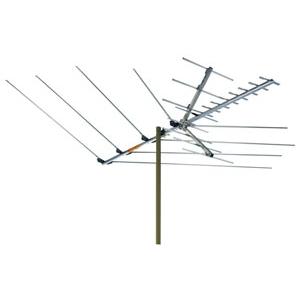First let’s get everyone up to date on what is happening.
As mandated by the Spectrum Act, broadcasters that are full power (commercial and non-commercial) and Class A licensees are able to sell off their broadcast spectrum in the reverse auction to be held in 2015. This move by the FCC allows local TV stations to sell off all or part of their broadcast spectrum.
Broadcasters will have four options to participate in the auction, depending on their current channel assignment:
- Bid to relinquish a UHF channel to move to either a high VHF (7 to 13) or low VHF (2 to 6) channel;
- Bid to relinquish a high VHF channel to move to a low VHF channel;
- Bid to relinquish their current channel in order to share a channel with another broadcaster after the auction; or
- Bid to relinquish their license and go off the air.
This auction has led to fears that hundreds of stations will sell off their spectrum and go dark has scared many cord cutters. So let’s look at three major reasons why broadcasters will still be on the air in 2016.
First local broadcast stations have contracts with major networks to broadcast their content over the air in their market. The auction requires stations who sell their spectrum to transfer it within 3 months of receiving payment. Broadcast stations would have to honor their contracts and stay on the air or face extremely large buy outs and possible legal action if they go dark before the end of their contracts.
Second most local stations are not owned by the major networks. Relinquishing their licenses and going off the air means going out of business. Beyond the fact that they have contacts with major networks it would mean the loss of all future revenues for what is a very small upfront payout. From refunding ad sales to buying out employee contracts it would be prohibitively expensive to just go dark.
Third the National Association of Broadcasters is suing the FCC to offer more protection for stations to insure that they can stay on the air. Well they do not wish to stop the auction they do wish to ensure their business model stays intact. If the majority of their members planned to go dark they would not be suing the FCC.
The most likely out come from this auction is sharing channels with other broadcasters or switching channels. Many companies own multiple stations in the same market. If one company owns an ABC and NBC licenses on two different stations it would allow them broadcast from the same tower saving money. This could mean you will find ABC on 8.1 and NBC on 8.2 allowing the owner to benefit from the sale and still benefit from the ongoing revenues.
Sharing a channel with a different broadcast station is by far the cheapest options. You cannot just reprogram and UHF tower to become a VHF tower. Stations would be forced into expensive new hardware to replace fair new equipment from the recent digital transition.
Well this does not mean the end of OTA TV for cord cutters it dose most likely mean fewer options. Many stations started to broadcast smaller networks in the last 10 years that popped up after the move to digital TV. Networks like MeTV showing old TV programs with the new digital technology. Other stations created 24 hour news and weather stations to offer more programming to sell ads with.
Money is always the driving factor in these kinds of decisions. Companies have shareholders and contrast they have to think about when looking at going dark. The FCC estimates the average station could get $140 million dollars selling off their broadcast spectrum. In 2012 CBS owned stations earned $200 million to $250 million in retransmission revenue from cable companies before they even sold ad space. Taking $140 million dollars and closing down the station looks like a very bad business model.
Even if a local CBS affiliate would go dark it is likely that CBS would just resell the rights for the market or open up their own station. During the Aereo battle we learned that major networks like CBS is banned from selling directly to cable under their contracts with location station. Leaving major networks with the decision to ignoring possibly major markets or buying their own station.
If CBS wanted to start selling as a cable station they would need to buy out or change their contracts with local stations. This would be an extremely expensive deal that would likely be dragged out in the court system for years to come.
Well it is unlikely that most stations will go off the air we do expect to see fewer broadcast towers. Sadly this will mean fewer options for cord cutters who enjoy smaller networks like MeTv.

